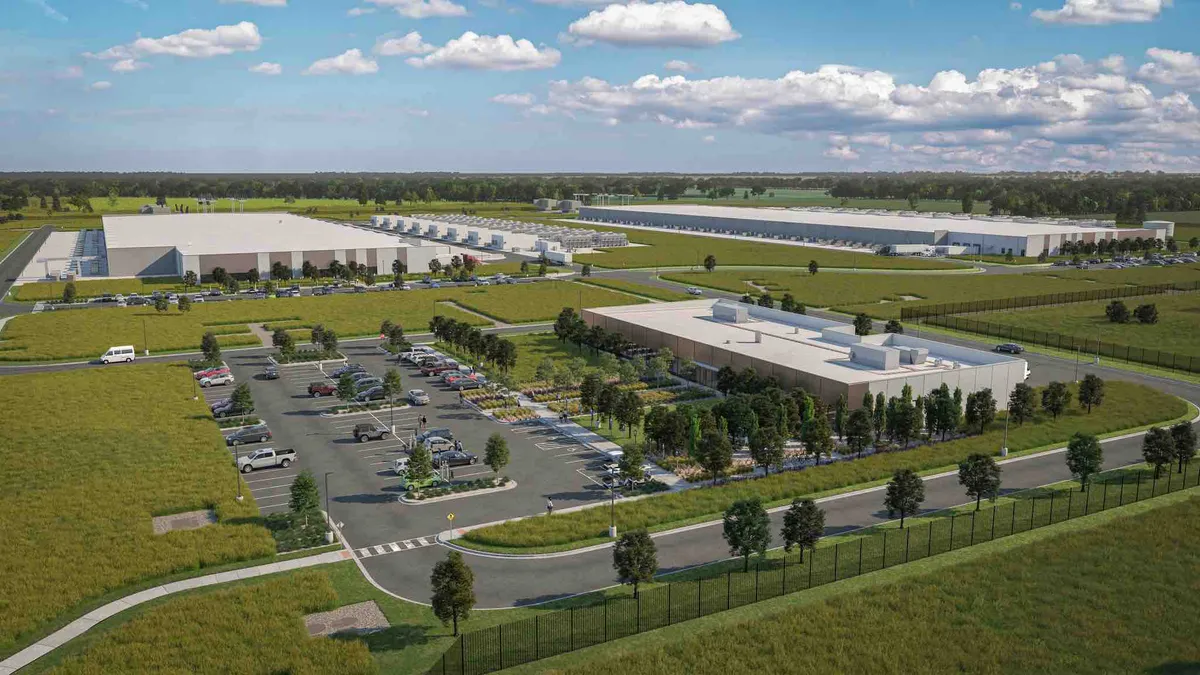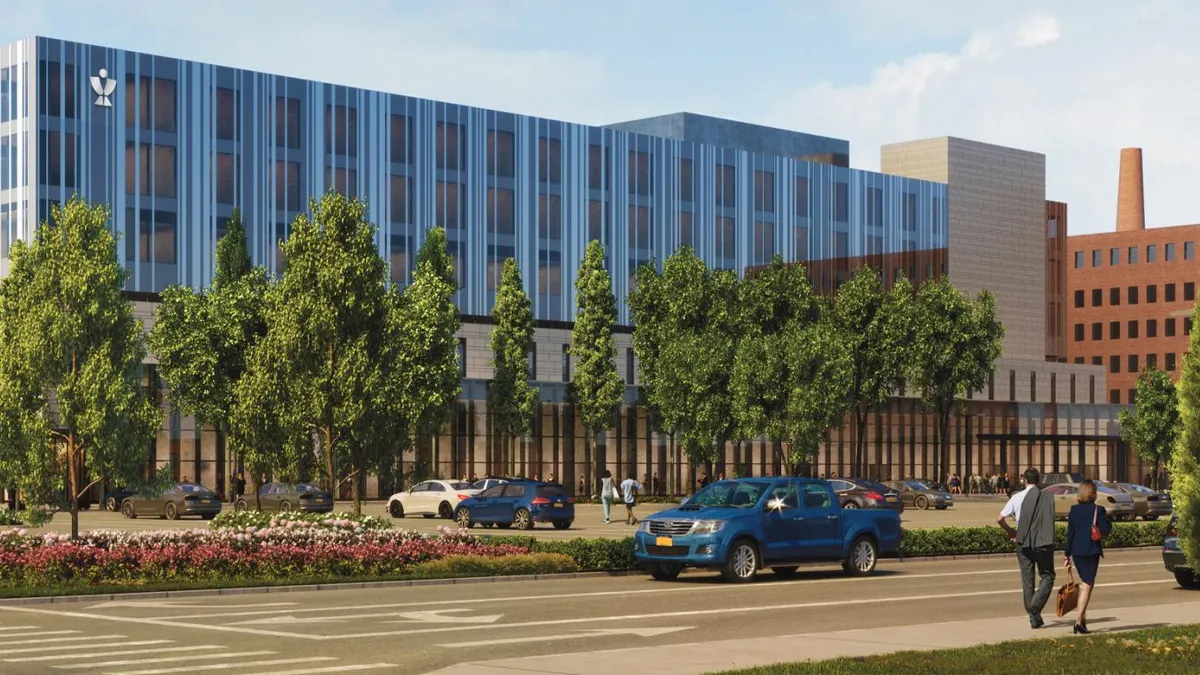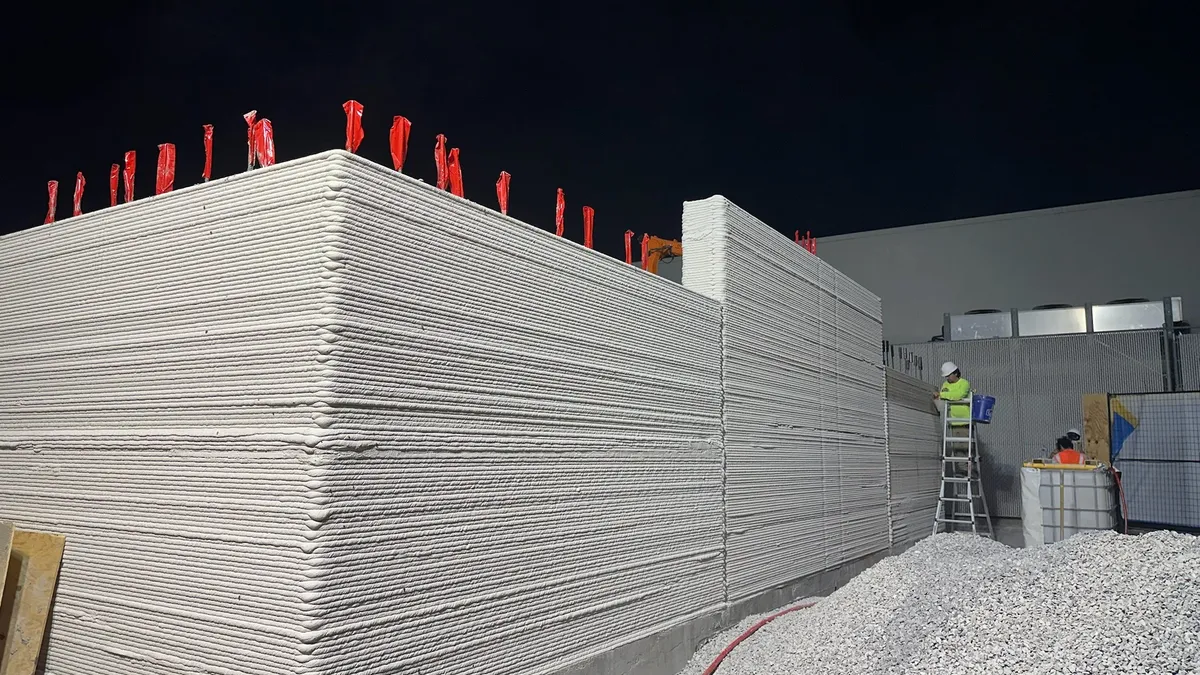Data center construction has long been recognized as a strong sector, yet its true magnitude may still be underestimated.
For instance, Coral Gables, Florida-based builder MasTec told investors it is looking to ramp up its footprint in the sector and establish a strong pipeline of data center work, according to its first quarter earnings call in May. Similarly, Fluor CEO David Constable recently drew parallels between the current surge in data center construction and the manufacturing boom during the firm’s own earnings call.
That optimism stems from rising institutional investment and solid market fundamentals, which, coupled together, will continue to drive momentum in the data center construction industry, according to a recent CBRE global data center investor intentions survey.
As businesses increasingly rely on data centers for digital infrastructure, the need for new construction projects remains strong, according to CBRE. Despite headwinds caused by elevated interest rates and lingering inflation felt by the broader industry, data center projects continue to bolster overall construction planning, according to the Dodge Momentum Index.
Recently announced projects include a $1 billion Microsoft data center in Indiana, a $800 million Meta data center in Alabama and a $630 million digital data center in Dulles, Virginia, to name a few.
Pre-leasing rates of over 83% in markets also show an impressive rate at which demand is meeting supply, said Pat Lynch, executive managing director for CBRE’s data center solutions. In Northern Virginia, he added that even with an 18% increase in year-over-year inventory, the region’s vacancy dropped to 0.9% from 1.8% the year prior.
“In addition to cloud service providers, financial services companies, healthcare companies, generative artificial intelligence and GPU as-a-service companies are a great example of a demand driver that’s remaining active in the market,” said Lynch. “From an AI perspective, much of what we are going to use this technology for has yet to be invented making growth prospects difficult to define but opportunistic nonetheless.”
Growth constraints
Not everything is full steam ahead, though. The data center construction sector still faces challenges such as power distribution constraints and supply chain delays for critical electrical components like transformers and circuit breakers, according to the report.
These issues are extending construction timelines and limiting the availability of new data center facilities, ultimately impacting project delivery and costs.
“The ability to procure transformers, switches, generators and other equipment required for transmission, distribution and electrical needs are the current bottlenecks,” said Lynch. “Construction companies are managing as best as they can.”
For example, Larry Ellison, company chairman and chief technology officer at tech giant Oracle, said its data center projects usually take longer to build than desired, largely due to issues with the procurement of generators, power supply systems, electrical switchgear and power distribution units. Tesla also faced delays with its Dojo data center project in Austin, Texas, due to delivery issues.
Buying in advance
For construction professionals, this means innovative solutions to mitigate delays and manage supply chain disruptions effectively. That includes alternative supply chains, investments in advanced project management technologies, and closer collaborations with suppliers and stakeholders, said Lynch.
“We have seen many of the larger data center operators provision equipment in advance and decide later where to utilize the equipment in a particular market or project,” said Lynch. “Essentially, they’re getting their equipment needs in the queue well in advance of knowing exactly where it might be deployed.”
Strong investor interest, particularly in opportunistic and value-add segments, signals a strong market for construction firms specializing in high-yield projects, according to CBRE. The report indicates about 80% of investors favor these asset types, highlighting a substantial opportunity for construction companies to align their offerings with market demand, said Lynch.
“Recruiting and retaining talent that has a recent and successful history in deploying and managing successful data center projects is key,” said Lynch. “This is a very specialized and risk averse industry and the end users expect a high level of experience and expertise for the projects they are committing.”




















